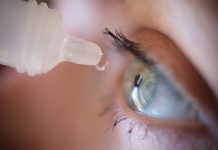
An arrhythmia, or irregular heartbeat, is a problem with the rate or rhythm of your heartbeat. Your heart may beat too quickly, too slowly, or with an irregular rhythm.
A frequent irregular rhythm may mean that your heart is not pumping enough blood to your body. You may feel dizzy, faint, or have other symptoms.
In a study from Yale University, scientists found while a common non-drug treatment called ablation exists for the heart rhythm disorder atrial fibrillation (a-fib), the procedure can be more risker for women than for men.
A-fib is a chaotic electrical pattern in the upper chambers of the heart. It affects up to 20% of Americans during their lifetimes.
It can be dangerous, raising the odds of a stroke.
In the study, the team aimed to better understand differences in treating men and women for a-fib.
They followed nearly 59,000 patients in an American College of Cardiology registry.
Catheter ablation uses radiofrequency energy burning or freezing technology to inhibit the electrical signals triggering the condition in pulmonary veins.
Over the past decade, as cardiologists have gained more understanding of anatomical differences in women (such as size), the safety of the procedure has improved.
For example, many medical centers now use ultrasound rather than just feeling for a pulse to more accurately place catheters.
To prevent heart perforation, the catheters also are now designed to allow cardiologists to feel how much force is being used in the ablation.
Doctors are also now more aware of sex-based differences in appropriate doses of blood thinners for women at the time of the procedure.
The researchers found that men tended to experience persistent a-fib.
But women tended to go in and out of atrial fibrillation, while also having more symptoms such as heart palpitations, chest pain, fatigue, and dizziness.
Women tended to be older when they had the procedure and experienced a much lower quality of life.
This suggests that there may be an opportunity for cardiologists to treat women earlier in the course of their disease.
The team found that women were also more likely to experience a range of complications after the ablation, including pericardial effusion, which happens when the heart is perforated and blood builds up around it. It can be life-threatening.
They were also more likely to experience slow heart rates that required a permanent pacemaker.
In addition, women’s phrenic nerve was more likely to be injured. This can paralyze the diaphragm, causing breathing difficulties.
Women were also more likely to have vascular injury and bleeding in the adjacent groin area that required surgery, as well.
They had more fluid buildup in the lungs, which can cause shortness of breath or heart failure. Treating it requires medication to remove the fluid and extends their hospital stay.
If you care about heart health, please read studies that Vitamin K2 could help reduce heart disease risk and coconut oil, olive oil, or butter: Which is bad for your heart health?
For more information about heart health, please see recent studies about plastics linked to heart disease and high cholesterol, and results showing calcium supplements may harm your heart health.
The study was conducted by Dr. James Freeman et al and published in Heart.
Copyright © 2022 Knowridge Science Report. All rights reserved.



